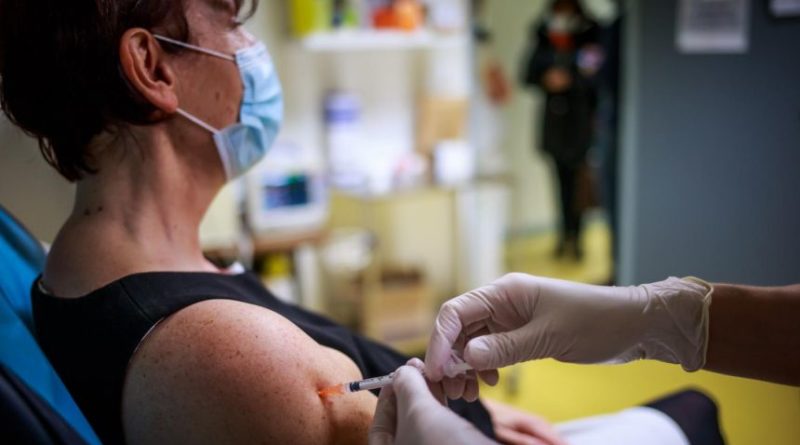COVID-19- MENTAL HEALTH: Rare nervous system disorder linked to possible side effects of AstraZeneca COVID jab
A rare nervous system syndrome has been added to possible side effects of the AstraZeneca jab. (Getty)
.
 A rare syndrome that affects the nervous system has been added to the list of possible side effects from the AstraZeneca COVID jab.
A rare syndrome that affects the nervous system has been added to the list of possible side effects from the AstraZeneca COVID jab.
The Medicines and Healthcare products Regulatory Agency (MHRA) has added Guillain-Barré syndrome as a possible side effect of the vaccine.
Guillain-Barré (GBS) is a rare, autoimmune disorder where a person’s own immune system damages their nerves, causing weakness and sometimes paralysis.
It affects nerves mainly in the feet, hands and limbs, according to the NHS, and symptoms can last for a few weeks up to several years. Most people recover fully, but some can be left with permanent nerve damage.
The syndrome was added to the list of potential side effects from the AstraZeneca jab by the European Medicines Agency (EMA) last month, and now the MHRA has also added it to its list after a review of available data.
But the syndrome falls into a category of “very rare” potential side effects, according to the government website, which means those which may affect up to one in 10,000 people.
Read more: Vast majority of Brits think MPs should wear masks in the Commons
Within this category sits blood clots, which the site says have prompted “extremely rare reports”, as well as “serious nerve inflammation, which may cause paralysis and difficulty breathing (Guillain-Barré syndrome [GBS])”.
According to reports, a government document revealed that up to 13 October, the MHRA had received 432 reports of the syndrome with the AstraZeneca COVID jab, 59 following use of the Pfizer/BioNTech vaccine and four reports connected to the Moderna vaccine.
Health officials maintain that vaccinations is the best way to combat COVID-19, with the government urging anyone who hasn’t had a jab to get one.
Government data up to 23 October shows that of the 95,226,529 Covid jabs given in the UK, 49,684,322 were first doses, a rise of 36,171 on the previous day.
Some 45,542,207 were second doses, an increase of 29,804.
Watch: Do coronavirus vaccines affect fertility?












